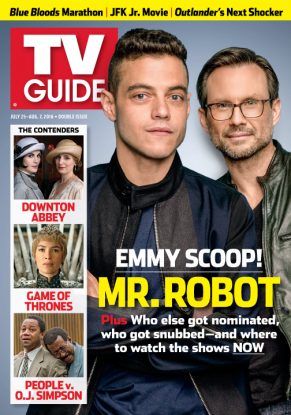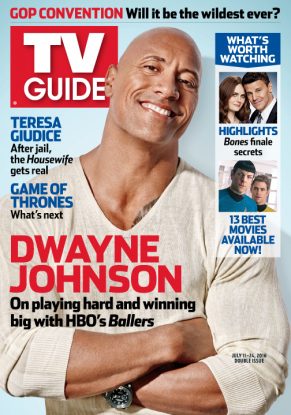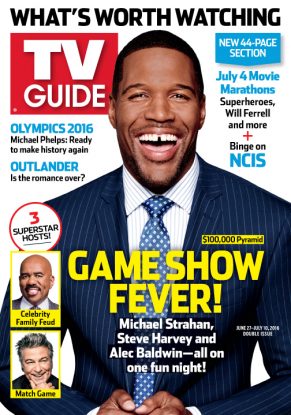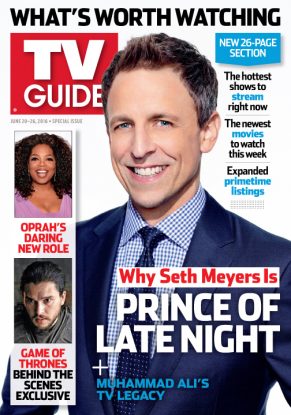Emmy Fever: Mr. Robot Leads a Wave of First-Time Nominees
The nominations for the 68th Primetime Emmy Awards have been announced and, in a refreshing change, many first-time nominees have earned recognition from the TV academy. There were, also, lots of returning favorites in the mix and, of course, some glaring snubs. TV Guide Magazine senior critic Matt Roush weighs in on this year’s Emmy race:
The Emmys so often feel like a closed shop, repeatedly welcoming back those who’ve won and been nominated before, that any new blood is always welcome. This is especially true in the most competitive arena: the TV drama.
So pardon a critic for loudly cheering when a longtime favorite, FX’s The Americans, finally gets its due in its fourth season of riveting spy intrigue, including overdue nominations for best drama and for its two chameleonlike stars, Matthew Rhys and Keri Russell.
Also breaking through: the provocative cult sensation Mr. Robot, a true game changer for USA that earned bids for best drama and its unconventional leading man, Rami Malek, in its freshman year. (Both series were also nominated for writing.)
With a best-in-field 23 nominations, HBO’s epic Game of Thrones is favored to repeat last year’s victory on the strength of its sensational climactic episodes, featuring the stunningly photographed “Battle of the Bastards” and the destruction of much of King’s Landing, with memorable casualties galore.
Also in this issue:
• Sharknado: Behind-the-scenes photos from the making of The 4th Awakens, the latest chapter in Syfy’s high-flying franchise.
• Ballers: Oscar nominee Andy Garcia talks about his alpha dog role opposite Dwayne Johnson on the HBO sports comedy.
• Oprah Winfrey: The queen of media opens up about her decision to join the cast of OWN’s spiritual drama Greenleaf.
• Plus: Outlander, Preacher, MADtv, Ripper Street, Bachelor in Paradise, the Summer Olympics, The Bold and the Beautiful, and the best of movies, streaming, sports and more.





